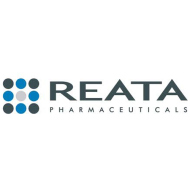Reata Enrolls First PAH Patients In Phase 2 Study Examining Bardoxolone Methyl-Based Treatment

 For those with PAH, treating inflammation associated with the disease could be the next step in improving quality of life and reducing the mortality rate.
For those with PAH, treating inflammation associated with the disease could be the next step in improving quality of life and reducing the mortality rate.
Reata Pharmaceuticals has enrolled the first patients in a Phase 2 clinical trial to assess the safety, tolerance, and efficacy of bardoxolone methyl in patients with pulmonary arterial hypertension (PAH). This new study aims to test the efficacy of Reata’s novel experimental therapy as a drug that can increase exercise capacity in patients, since currently-available PAH treatments can improve symptoms by relieving vasoconstriction, but don’t address the underlying inflammation associated with the disease.
Currently, other therapies for PAH do not directly affect muscle energy production, as they only mechanically vasodilate the pulmonary arteries to increase blood flow. In response to this, Reata will utilize cardio-pulmonary exercise testing in this new study to determine whether bardoxolone methyl can improve muscle energy production, in effect translating into a general improvement in exercise capacity as assessed by the study’s 6 minute walk test.
[adrotate group=”4″]
Scientists from Reata worked in collaboration with academic researchers to demonstrate that bardoxolone methyl and other related compounds include not only antioxidant and anti-inflammatory properties that can benefit patients with endothelial dysfunction, but also anti-proliferative and anti-fibrotic effects. Research has demonstrated that antioxidant inflammation modulators (AIMs) stimulate the normal vasodilatory tone by restoring endothelial function and suppressing vasoconstrictive endothelia signaling.
 “This activity should complement available PAH therapies, through inhibition of pro-inflammatory NF-κB signaling bardoxolone methyl also directly suppresses inappropriate proliferation, which is not directly affected by currently approved products,” explained Dr. Colin Meyer, Reata’s Chief Medical Officer. “Additionally, our collaborators and we have shown in preclinical studies that Nrf2 activation positively regulated mitochondrial function, promoting increased cellular energy production. This is reduced in many PAH patients and results in significant fatigue and functional impairment.”
“This activity should complement available PAH therapies, through inhibition of pro-inflammatory NF-κB signaling bardoxolone methyl also directly suppresses inappropriate proliferation, which is not directly affected by currently approved products,” explained Dr. Colin Meyer, Reata’s Chief Medical Officer. “Additionally, our collaborators and we have shown in preclinical studies that Nrf2 activation positively regulated mitochondrial function, promoting increased cellular energy production. This is reduced in many PAH patients and results in significant fatigue and functional impairment.”
Reata’s Phase 2 multi-center, double-masked, randomized, dose-ranging, placebo-controlled study will primarily seek to measure the efficacy endpoint of the therapy by using a six-minute walk test to record data. The trial will also examine alterations from baseline in cardiopulmonary exercise testing, cardiac magnetic resonance imaging, parameters collected during Doppler echocardiography, and other key measures.
Pulmonary arterial hypertension is a disease that involves endothelial dysfunction — a vasoconstriction in the small pulmonary arteries — which causes the proliferation of vascular cells and sends dysregulated inflammatory signals to vascular remodeling, pulmonary fibrosis, and right ventricular hypertrophy.
In the United States, PAH affects about 15,000 – 20,000 people, mainly middle-age women. The PAH mortality rate among patients stands between 60 and 80%, while the survival period after the diagnosis is about five years.
[adrotate group=”3″]
Reata Pharmaceuticals’ research and development efforts are focused on drugs that treat complex diseases, which includes the development of a novel class of drugs with potent transcription-regulating activity, called antioxidant inflammation modulators (AIMs). In addition to Reata’s ramping up of this new clinical trial, the company will also serve as a general Sponsor the PH Association’s annual meeting, which takes place in Indianapolis, between June, 20 and 22. The PHA notes that its “International PH Conference and Scientific Sessions is the largest gathering of the pulmonary hypertension community in the world, and the 2014 Conference promises to be no different. Bringing together patients, caregivers and family members, nurses and other allied health professionals, physicians, researchers and leaders of PH associations from around the globe, Conference will provide three days of education, networking and support for the pulmonary hypertension community.”
Through its sponsorship and participation, Reata hopes to advance the discussion on how to effectively treat and manage PAH in order to extend lifespan and improve quality of life for its patients.
Pulmonary Hypertension News is currently working on a comprehensive feature story profiling Reata’s new, experimental therapy for PAH. Be sure to check back to the website for more news on this promising study.







